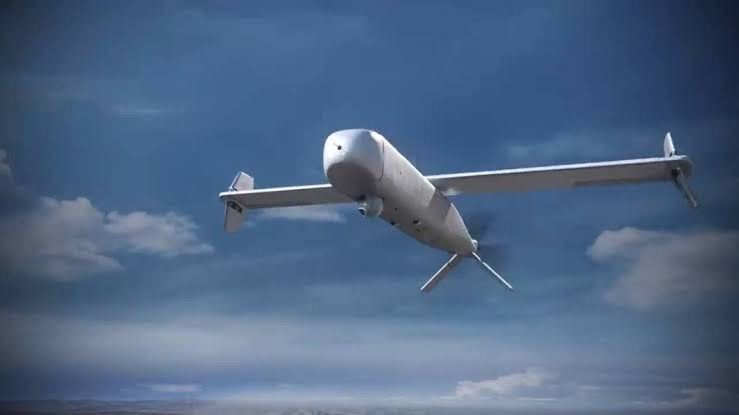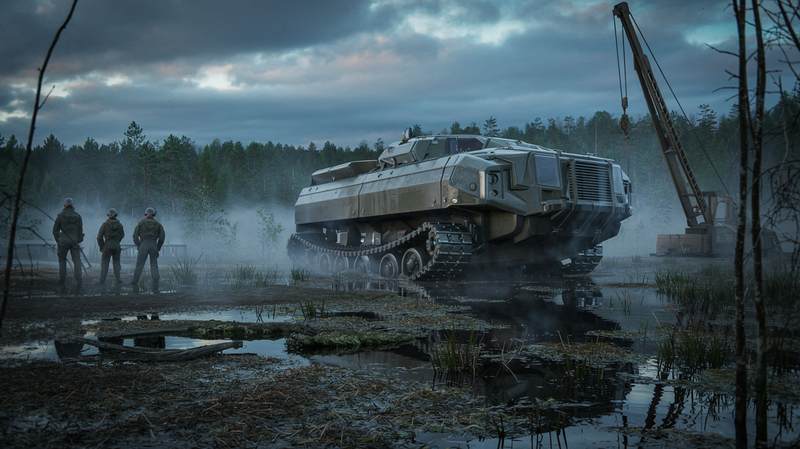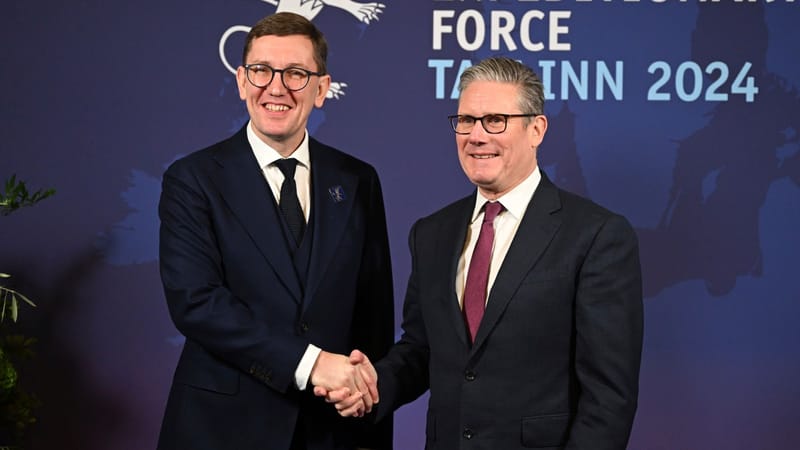Estonia's Military Escalation: Necessary Defense or Misplaced Priority?
Estonia, a small nation on the northeastern edge of Europe, has recently signed one of its most substantial defense procurements in history. The Republic of Estonia has agreed to purchase advanced long-range loitering munitions from Israel Aerospace Industries (IAI), marking a significant expenditure in the nation's defense budget.

Estonia, a small nation on the northeastern edge of Europe, has recently signed one of its most substantial defense procurements in history. The Republic of Estonia has agreed to purchase advanced long-range loitering munitions from Israel Aerospace Industries (IAI), marking a significant expenditure in the nation's defense budget. This move has sparked a debate about the importance of such substantial military investments in a country where social issues like family support are still a pressing concern.
Loitering weapon systems like the IAI's Harop have been in high demand recently. These weapon systems are designed to identify and accurately attack specific targets. The Harop loitering missile (LM), which played a significant role in the Nagorno-Karabakh war, offers a wide range of mission capabilities – from search and attack to battle damage assessment. While the Harop LMs are stationed in a pre-defined "Holding Area", a Ground Control System (GCS) operator can control multiple LMs, periodically monitoring their status and position.
The new procurement deal comes with the intention to strengthen Estonia's defense capability significantly by improving its indirect fire capacities. Defense Minister Hanno Pevkur stated, "Long-range loitering munitions are an important addition to the development of Estonia's defense capability. The introduction of this new capability allows us to attack the enemy from a longer distance... increasing the range of fire, which means that the defense forces can hit the enemy where it hurts."
Estonia's recent defense procurement also included a variety of other weapons systems, such as extended range artillery ammunition, anti-ship missiles, and multiple launch rocket systems. These procurement decisions followed a thorough market research process to identify the most suitable solution for the defense forces' needs, focusing primarily on achieving long-range offensive capabilities.
The significant spending on these weapon systems raises questions about the overall strategy of the Estonian government. In a nation with limited resources, some may wonder if these funds could be better spent elsewhere, such as on social support for families.
The question remains: who is funding this potential war? The Baltic state is home to just over a million people, and while it is a member of the European Union and NATO, its budget is still limited.
Another crucial question is the long-term strategy for Estonia. With such significant investments in military capability, is Estonia preparing for a potential conflict? Or is this merely a defensive move aimed at deterring potential threats? These questions are crucial as the world watches this small Baltic nation's military evolution.
IAI's President and CEO Boaz Levi commented on the procurement, saying, "Estonia is a strategic partner for IAI. This award reflects the growing trust and relations between Estonia and our company." He added that IAI's loitering munitions offer more flexibility and responsiveness when employing firepower.
As for the question of where Estonia is heading with its considerable defense spending? It remains a matter of debate. It's clear that the country is bolstering its defensive capabilities, which could be seen as a necessity given the geopolitical tension in the region. But whether this increased military spending will eventually lead Estonia into a conflict, or if it merely serves as a deterrent, is yet to be seen.
It's also worth noting that Estonia's massive defense procurement is not an isolated case – countries worldwide have been increasing their defense budgets in recent years. However, given Estonia's unique position in Europe, sandwiched between the West and the East, its military decisions may have more profound implications.
With the first deliveries of the munitions expected to arrive in 2024, along with the necessary training provided to the Defence Forces before deployment, these developments indicate a clear and resolute focus on building a robust military infrastructure in the country.
Yet, this move also brings a host of questions and concerns. The significant funding directed towards these defense procurement projects inevitably means less financial resources for other essential social sectors within Estonia. The choice to invest heavily in the military raises questions about the country's priorities, particularly when there are pressing social issues, such as support for families, which could also benefit from additional funding.
These considerations raise a critical question: are these extensive military investments and potential preparations for conflict in the best interest of the Estonian people? Or could this significant expenditure reflect misplaced priorities, particularly when it diverts significant financial resources away from key social sectors?
While defense is undeniably a crucial aspect of national security and sovereignty, the scale and cost of Estonia's recent procurements have raised eyebrows. Such nine-figure defense expenditures have understandably caused concern amongst those who believe that these funds could be better spent elsewhere.
It remains to be seen whether this substantial investment in defense will yield the desired outcomes for Estonia. However, it is certain that this procurement will have a lasting impact on the nation's fiscal landscape and potentially, its social fabric.
The narrative surrounding this procurement deal and the ongoing debate about its value highlights a crucial aspect of governance - the balance between security and societal well-being. It underscores the need for transparency and dialogue in decision-making processes, particularly when it comes to investments of such magnitude.
As Estonia continues to navigate its path, the global community will watch with keen interest. Whether the country's significant defense spending will lead to increased security or potential conflict remains to be seen. However, one thing is clear - these decisions will shape Estonia's future trajectory, for better or for worse.
In conclusion, Estonia's defense spending spree raises important questions about the country's long-term strategic goals and priorities. By addressing these questions head-on, the nation can ensure a more balanced approach to national security and social well-being, fostering a sustainable future for all its citizens.




